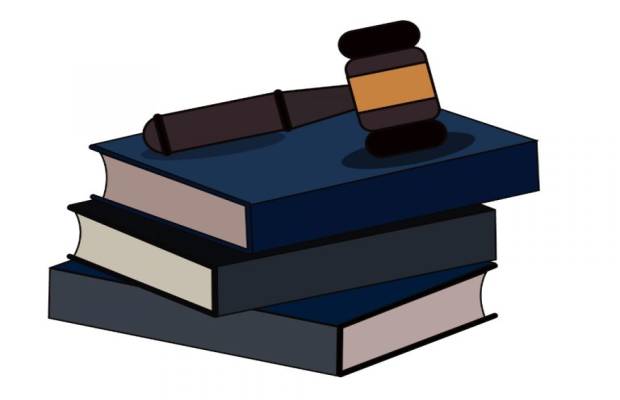How To Sue A Bank In South Africa: Your Rights And Options

In South Africa, filing a bank lawsuit requires adhering to a rigorous legal process intended to settle disputes or grievances. This book offers a thorough synopsis of all the necessary steps needed to successfully and efficiently manage this process.
Building a strong legal case requires understanding your rights and documenting important information, as well as looking into alternative dispute resolution methods and completing and submitting legal documentation. Consulting with an experienced attorney is essential to ensure compliance with South African banking laws and to receive individualised legal advice during the litigation process.
How to Sue a Bank in South Africa: Your Rights and Options
- Get a legal advice
- Keep thorough records
- Know Your Rights
- Arbitration and Mediation
- Send in a formal Letter of Demand
- Assess Jurisdiction
- Launch Legal Action
- Comply with the legal obligation to Serve the Bank
- Discovery Process
- Court Proceedings
1. Get legal advice
Speak with an experienced lawyer with a focus on banking or finance law. If you are considering taking legal action against a financial institution in South Africa, you should consult with a lawyer first. Banking and financial law specialists can offer crucial insight into the merits of your case, clarify relevant laws and guidelines, and help you through complex court processes.
They help with assessing the truth of your claim, putting together necessary legal documents, and offering advice on the best course of action. An experienced lawyer may make a big difference in your chances of getting the best possible result and making sure you follow all the rules regarding the law in your specific situation.
2. Keep thorough records
Gather and arrange all relevant documents, including contracts, bank communications, and financial statements. When preparing to file a lawsuit against a bank in South Africa, meticulous documentation of all pertinent facts is a vital and critical step. Gathering and organizing all relevant documents, including statements, contracts, and bank communication, is part of this procedure. Thorough documentation is essential proof to support your claims in court proceedings.
READ ALSO » Your Rights And Options On How To Sue A Bank In India
Keeping an extensive file of agreements, transactions, and other bank-related correspondence strengthens your case and creates a logical sequence of events. It is advised that you work closely with your lawyer to compile and organize this information to ensure that it will be useful in building a strong case against the bank.
3. Know Your Rights
Become acquainted with your rights and obligations by South African banking laws. It is essential to fully understand your rights before bringing legal action against a bank in South Africa. It means learning in-depth information about your legal rights and obligations concerning South African banking laws.
This understanding forms the basis for building a strong case and enables you to make educated decisions throughout the court case. At this point, you should get legal advice from an expert to fully comprehend your rights and receive tailored legal advice that takes into consideration the particulars of your case.
4. Arbitration and Mediation
Take into consideration using arbitration or mediation to settle some disputes before turning to the legal system. It is a wise strategic move to initiate the mediation or arbitration process before filing a formal lawsuit against a bank in South Africa.
This includes assessing alternative conflict resolution procedures, including arbitration or mediation, to settle the issues without going to court. Whereas arbitration involves the engagement of a third party that issues a legally enforceable ruling, mediation involves the involvement of an unbiased mediator who supports the bargaining process.
Using these strategies could lead to a quicker and less expensive resolution. It is important to assess whether these strategies are appropriate based on the details of the dispute. Consulting a legal professional can help you get through this process and determine whether mediation or arbitration is a viable option for reaching a settlement.
5. Send in a formal Letter of Demand
Have your attorney send in a formal letter of demand to the bank that outlines your grievances and the precise resolution you are looking for. This is the first step that should be considered when considering filing a lawsuit against a South African bank.
READ ALSO » 7 Ways To Understanding Mortgage Options For First Time Homebuyers
To commence this procedure, your attorney must send a formal letter to the bank outlining your grievances, the supporting documentation for your claim, and the precise result you seek.
The letter serves as a medium of communication to let the bank know that you plan to file for bankruptcy if a mutually beneficial resolution cannot be reached. It might also be a proactive move to encourage dialogue before pursuing legal action. To ensure accuracy and adherence to legal standards, a well-written letter is imperative, and seeking legal advice at this juncture is highly recommended.
6. Assess Jurisdiction
Based on the nature and extent of your claim, determine which court would be best to file a lawsuit. In South Africa, determining jurisdiction is a necessary first step in filing a lawsuit against a bank. It involves determining whether jurisdiction is appropriate to file a lawsuit, considering the kind and amount of your claim. Knowing the jurisdiction ensures that your case is heard by the right court, which may be different depending on factors like the location of the bank and the nature of the problem.
Adhering to the relevant jurisdiction is essential for a just and lawful resolution of the matter. To ensure that you file your complaint promptly and to manage this procedure efficiently, it is advised that you obtain legal assistance.
7. Launch Legal Action
Prepare and file the necessary court documents to bring the case before the appropriate court. A Summons or Complaint must be filed before any legal action against a bank in South Africa can begin. First, the relevant documents, like a summons or complaint, must be formally presented to the relevant court to start the legal process.
Your legal action against the bank is supported by these materials. Following the procedures and guidelines set forth by the court is crucial at this point. By formally acknowledging the matter and laying the groundwork for future legal actions, filing starts the legal process. It's advisable to consult a lawyer to ensure accuracy and compliance with all relevant legal requirements.
8. Comply with the legal obligation to Serve the Bank
Ensure that the court's rules and procedures are followed and that the bank gets the required legal documents. When using a bank in South Africa, serving the bank refers to the formal process of submitting legal documents, like summonses or complaints, to the bank. A formal notification of the legal action to the bank is ensured by effective service.
The advancement of the legal process depends on adherence to the unique regulations and guidelines set forth by the court. For all parties to participate in the legal process and carry out their respective duties in the case, prompt and accurate service is essential in ensuring that the bank gets the information required about the litigation.
9. Discovery Process
READ ALSO » Top 10 Oldest Bank In Nigeria
During the discovery process, both sides exchange relevant data and documents. The exchange of relevant documents and information between the parties involved in a lawsuit against a bank in South Africa is called the discovery phase. Both the plaintiff and the bank offer material that could bolster or undermine the claims.
This phase is essential to building a comprehensive case. By ensuring transparency and facilitating mutual understanding of the facts put out by each party, the discovery process helps to ensure a just and informed court decision. To successfully traverse the complexities of the discovery process and strengthen your case in the lawsuit against the bank, close collaboration with your attorney is essential during this period.
10. Court Proceedings
Follow the law until a decision is made, present your case in hearings, and participate in the proceedings. Since they necessitate presenting one's case before a court of law, court proceedings are an essential step in the bank lawsuit process in South Africa. This means supporting your claims with documentation, appearing at hearings, and following the law to preserve your rights.
In this stage, both parties engage in legal discussions, investigations, and back-and-forth questioning. After evaluating the facts, the court renders a decision. It is essential to follow the court's procedures, guidelines, and deadlines.
Getting knowledgeable legal representation is crucial to successfully navigating these legal procedures and increasing the likelihood that your lawsuit against the bank will be successful.
